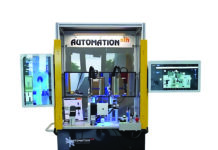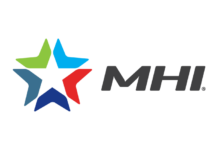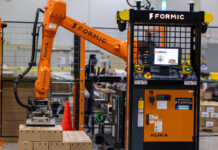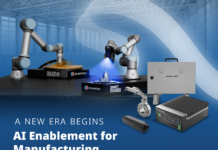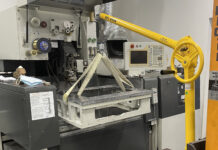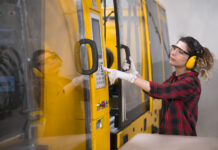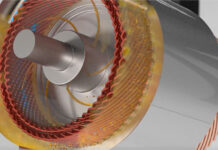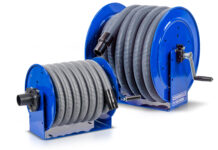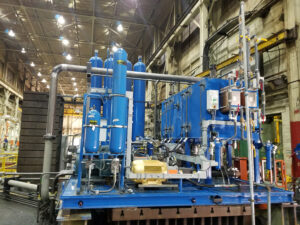
Purchasing new forging equipment from a “low cost” overseas supplier that offers a limited number of standard options from a catalog can be very costly in the long run. In the notoriously high impact forging industry, standard “one size fits all” equipment often will not fit the application without some level of customization, and inevitably will require spare parts and service that can be difficult to find years later.
When production depends on the reliable operation of forging equipment, the problem can be even more severe. If overseas catalog equipment (such as forging frames, presses, or hammers) breaks down or fails due to part shortages, production bottlenecks, or logistical delays, then late delivery of parts to customers can occur. Sub-par forging equipment can also become obsolete and must be prematurely retired or replaced if it is purpose-built for one specific project and cannot be adapted to meet future market demands.
As a result, instead of purchasing from inflexible overseas catalog suppliers, a growing number of manufacturers in North America are turning to domestic OEMs that can adapt and customize forging equipment. When needed, such firms have necessary parts and service readily available for customers utilizing well-established quality brands.
To future-proof an investment in new forging equipment today, manufacturers should consider some key issues.
If overseas catalog equipment does not meet the requirements of the process, extra steps and labor may be necessary, and manufacturing certain parts may not be feasible. For example, if a 1,000-ton press is purchased and 1,200 tons is required, the equipment may not be able to make the part. Issues can also occur if the press bed or daylight is too small and unable to accommodate a new tool set. Alternatively, if the forging process dictates that a machine must change velocities multiple times within an inch, a catalog purchase may only be capable of one forging speed.
Some manufacturers may select forging equipment for a specific project without thinking long term about the availability of spare parts or service years, or what will happen when the current project is completed and new parts need to be made.
Higher quality forging equipment
Any manufacturer purchasing forging equipment today needs to consider if spare parts and service will be available over the next 10-20 years. Given that quality forging equipment can operate much longer – up to 80 years in some cases – longevity must be considered.
The ability to adapt the equipment to meet future demands is also important. Manufacturers should give themselves some flexibility to cover the unknowns, including how the equipment can be adapted to make other parts in the future.
Overseas Limitations
Overseas forging equipment suppliers from China or India may provide standard machines, but are often unwilling or unable to make any required modifications to their standard offerings. The quality of the forging equipment’s control components can also be a concern as well as the use of component parts that are essentially “knockoffs” of U.S. brands.
Although European forging equipment is more on par with domestic offerings in terms of quality, replacement parts still must also be sourced from there. Long lead times for replacement parts, limited phone support (due to time zone differences), onsite customer support response time and shipping times, as well as customs delays, can result in extended production downtime.
The Domestic Advantage
The ability to expedite service and repair for a variety of equipment types commonly found on North American manufacturing floors was one of the considerations behind
merging the leading brands Ajax Manufacturing, Chambersburg (CECO), and Erie Press Systems under the parent company Park Ohio (NASDAQ: PKOH).
The U.S.-based company, Ajax-CECO-Erie Press, a manufacturer of forging equipment since 1875, is now the largest OEM forging equipment supplier in North America. This includes horizontal and vertical forging presses, mechanical and hammer forging presses, and hydraulic presses for a variety of applications.
Founded in 1895, Erie Press Systems offers custom hydraulic presses for a variety of applications including forging (closed die, open die, and ring preforming), metal forming, carbon extrusion, composite presses, stretch forming machines, legacy hammers, and a line of standard mechanical forge presses.
The merger means manufacturers that over the past hundred years have utilized one or more of the brands in the same plant now have a single source OEM for equipment, parts and service.
“With the companies combining, we have additional resources to share, so we can respond to support requests faster and have more field service technicians available. Our investment in R&D and new technology has also improved due to the merger,” says Bill Goodwin, Vice President of Sales and Engineering, Erie Press Systems.
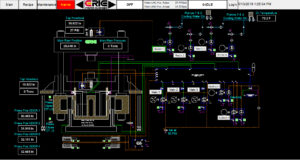
When replacement parts are required, Goodwin says Ajax-CECO-Erie Press offers stocking programs for long lead time items such as main gears, eccentric shafts, rams, etc., that most customers do not stock due to the cost. In this type of program, the part is held in inventory for the customer. The customer pays a percentage of the cost and then the balance when they take possession of the part – even if years later.
“A custom stocking program with minimal up-front investment can eliminate months of down time due to long lead time parts,” says Goodwin. “Instead, multiple machines with parts of similar size and design can have the parts manufactured to a semi-finished state in preparation for use with any of the machines. When needed, the exact dimensions for the down machine can be provided so the part can be completed to spec, ready to install.”
Information such as the design specifications, including critical data on high-wear parts, the material grade of the steel, the heat-treating process that was used, and the required clearances that were used in the engineering of that particular forger are usually all needed for a quality repair or certainly a rebuild.
The same design expertise, gathered over more than a century, enables the company’s forging equipment to last many decades. Some of the company’s forging equipment, in fact, has successfully performed for nearly a century with refurbishment and any necessary updates.
“If a manufacturer needs a part for a hundred-year-old hammer, Ajax-CECO-Erie Press probably has the prints for it, so we can supply replacement parts or provide a good substitute. That is just not possible from the overseas options that were not even in business 10 years ago,” says Goodwin.
Lastly, domestic OEMs provide forgers with an opportunity to take advantage of the most advanced automation and diagnostic options available today. Entire forging line “cells” can be created that include sophisticated communications that report production rates and machine performance back to company networks.
Ajax-CECO-Erie Press has also developed an online diagnostic system for remote monitoring and support through a remote Ethernet diagnostic connection provided on all Erie Press machines. The Ethernet-based control system provides Erie Press engineers a platform to remotely view the machine’s health as it is operating.
Although manufacturers may be tempted to buy forging equipment from overseas catalog suppliers based solely on the lowest initial price, those that select a domestic partner that can customize to their specific requirements and rapidly respond with any needed parts and service may gain significant, long-term advantages that save them money in the long run.

